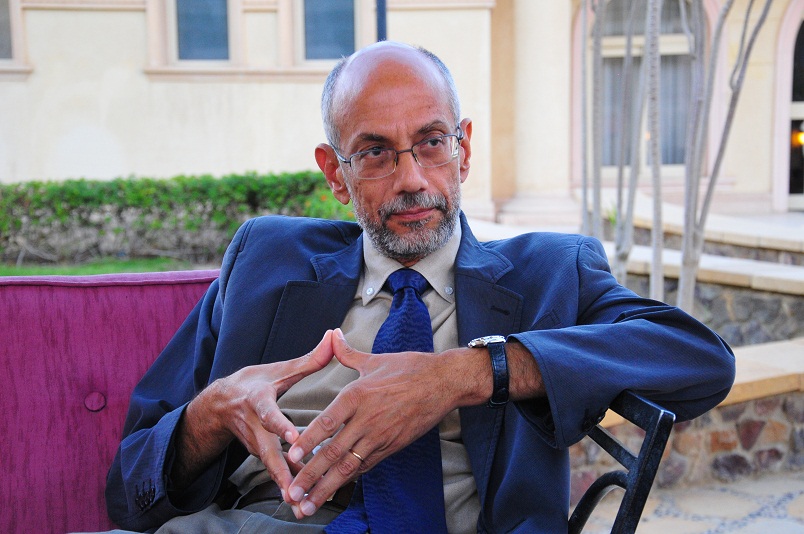CAIRO: The Egyptian Exchange 30 (EGX30), Cairo’s main stock market index, has had something of a volatile year in 2010, as it rallied through the first quarter, declined through much of the second and began to stage a moderate recovery in the third.
While its gain so far this year is less than many hoped for — up just 2 percent by mid-August — there are reasons for optimism in the year’s waning months, as recent developments promise to improve the transparency of Egypt’s capital markets and analysts predict a surge throughout the sector in the fourth quarter.
In addition to exogenous uncertainties sparked by the complications in the Eurozone, Egypt’s capital markets have had to grapple with limited access to information and incomplete transparency. Indeed, of the 219 companies listed on the EGX, 30 percent lack investor relation departments, and almost 40 percent more do not post their financials online. The lack of communication increases the level of risk, particularly for foreign and institutional investors.
However, the regulatory authorities are now taking a stricter stance on both transparency and governance rules. The EGX delisted 60 companies at the beginning of 2010 for failing to meet guidelines designed to increase transparency and boost trading, and regulators say that dozens more could be bumped by the end of the year if they fail to meet new rules promulgated in May.
In that same vein, the EGX has created a new index that ranks its listed companies based on their attentiveness to environmental, social and corporate governance (ESG) issues. The ESG index, which is a joint effort among EGX, Standard & Poor’s, the Egyptian Institute of Directors (EIoD), and India’s Credit Rating and Information Services, will be based on 197 factors drawn from publicly available information and media coverage, and will be published once a year.
This push for greater transparency is being aided by the establishment, also in May, of the Egyptian Investor Relations Association (EIRA), an independent body dedicated to making corporate information public. The EIRA, which enjoys the support of the EGX, as well as international heavyweights such as Bloomberg, JP Morgan and the Bank of New York, plans to offer training courses for current and potential investor relations officers. It will also establish a network and journal for discussing regulatory changes.
Egyptian companies should also get a boost in the short-term from broader financing. Over the past few months, local banks such as Crédit Agricole Egypt and multinationals such as HSBC have pledged to expand lending throughout the region, and private equity firms are moving in the same direction.
EFG-Hermes Holding intends to set up two funds, one valued at €1 billion and the other at LE 1 billion (€137 million), to fund investments in North Africa, while South Africa’s Investec Asset Management has talked about tripling its investment in the continent over the next five years.
Of possibly greater importance is the resurgence of Egypt’s corporate bond market. Companies are increasingly looking to the debt market to raise capital, not only because banks have been chary with their lending, but also because the government has set up incentives for them to do so. Corporate bonds are tax-free in Egypt, and the Ministry of Finance has recently amended the Capital Market Law to reduce, in its own words, “the time and costs of bond issuance.”
Given the improving economic outlook and the measures to tighten up standards on the bourse, investor interest in the Egyptian market is likely to increase going forward.
According to Youssef El Far, the CEO of Naeem Holding, a local investment banking and private equity firm, “Egypt offers an ideal gateway into the Middle East and North Africa region for investors from the West or Asia looking to diversify their holdings.”
In addition, unlike some markets in the region, the Egyptian bourse is diversified in terms of both sectors and company size and offers a range of investment options. “Part of the appeal of Egypt’s stock market is the broad range of companies on the exchange. Virtually every sector is present, in the shape of everything from small and medium-sized enterprises to blue-chip firms,” Mohamed S Younes, the chairman of Concord International Investments, a New York-based investment fund manager specializing in Egyptian securities, told OBG.
The EGX should also rise with the tide that many analysts are expecting will buoy all developing markets in the coming months. Citigroup forecasts a rally of 20-25 percent in emerging market stocks during the fourth quarter, while Deutsche Bank projects returns of between 19 percent and 42 percent over the next year as investors flee Europe and North America in search of better returns. If anything, Egypt should fare better than its peers. The EGX has outperformed the MSCI Emerging Markets Index in 2010, while the country has maintained exceptional growth.
“Last year was a difficult year for the markets,” Shireen Al Kady, the chairman of Prime Holding, told OBG. “But for business in Egypt as a whole it was merely a slip and not a drop.” –This article was first published by Oxford Business Group on August 30, 2010.


